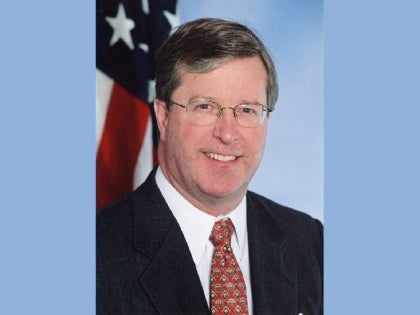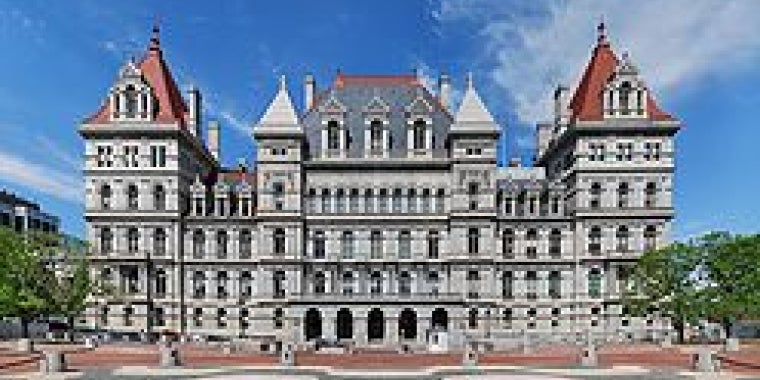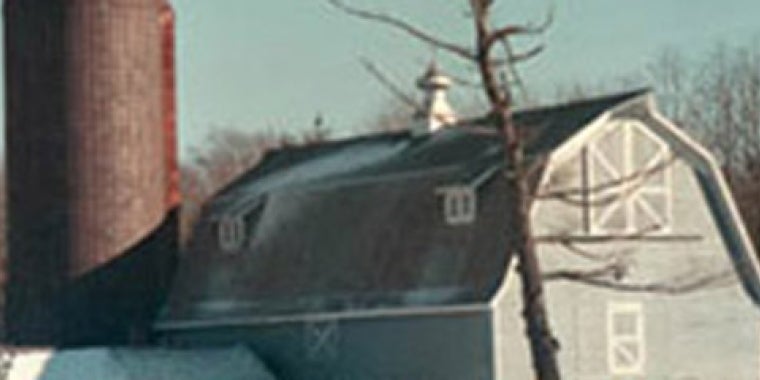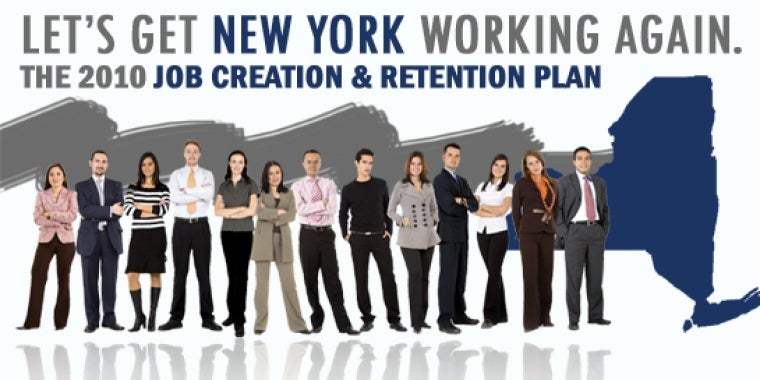
Winner Proposes 'Rural New York Agenda'

Elmira, N.Y.-- State Senator George H. Winner, Jr. (R-C, Elmira) has introduced a package of legislative proposals to begin to address some of the key short- and long-term challenges facing rural communities in the Southern Tier-Finger Lakes region he represents, as well as rural regions across New York State.
Noting that only approximately 30 of the state's 212 state legislators represent what can largely be considered rural regions, Winner also pledged to continue to help create a greater focus on rural New York within the state Legislature.
"We need to build a stronger commitment to a 'Rural New York Agenda' within this Legislature,¨ said Winner, beginning his second legislative session as chairman of the joint, bipartisan Legislative Commission on the Development of Rural Resources. "We're an institution of predominantly big city, urban interests. There's a real risk that the short- and long-term challenges facing rural, upstate New York get left behind. We can't let that happen.¨
A package of legislation currently being sponsored by Winner focuses on a series of economic and cultural concerns that many rural communities statewide struggle to address, including the recruitment and retention of volunteer fire fighters, emergency medical technicians (EMTs) and other emergency services personnel; high unemployment and limited economic opportunities; a lack of services for an ever-growing population of senior citizens; and planning and land use decisions which threaten some of the traditional foundations of rural New York's culture and economy, especially agriculture.
"These are opening ideas,¨ said Winner. "The work of the Rural Resources Commission remains devoted to building and growing a Rural New York Agenda that continually seeks to improve the quality and strength of our rural communities.¨
Toward that end, Winner said that the Rural Resources Commission has joined with experts from Cornell University, a nationally recognized leader on rural affairs, to advance what's known as the "Rural Visioning Project.¨ A series of Rural Listening Sessions are currently being conducted in rural communities statewide to give local leaders, farmers, advocates, concerned citizens and others an opportunity to share their ideas and suggestions for public policies to address the needs of rural regions.
Winner noted that local legislators Assemblyman Jim Bacalles (R-C, Corning) and Assemblywoman Barbara S. Lifton (D-Ithaca) serve on the 10-member Rural Resources Commission.
Following the conclusion of the listening sessions in late March, a comprehensive State of Rural New York Conference is being planned within the coming year to cement a more concrete working agenda for federal, state and local policymakers.
The legislation he's currently sponsoring, Winner said, represents the beginning of that more comprehensive Rural New York Agenda. The legislative package includes measure to:
> create the "Rural New York Smart Sites¨ program (Senate Bill Number 2588) within the Empire State Development Corporation to provide state assistance and foster a state-local partnership including local economic development agencies, public officials, public and private technology experts, Internet service providers and others to establish technology-based service facilities in rural communities. The envisioned Rural New York Smart Sites would offer trained workers, high speed bandwith and state-of-the-art technological services to the global business community. Business that locate within the proposed smart sites could provide computer, data processing or telecommunications services such as web site development, database development, help desk support, software testing and computer programming.
A related and equally important measure (S.2747-B) would promote access to advanced telecommunications services in under served rural areas through the creation of a state-level "Advanced Telecommunications Services Rural Access Task Force" that would evaluate and guide state and local strategies for the deployment of a telecommunications infrastructure in rural regions. The task force would include representatives from education, health care, business and industry, and local government, as well as related state agencies and associations.
"It's the beginning of an economic development strategy to help bring the excitement and prosperity of a high tech future to rural New York,¨ Winner said. "Rural communities must find a niche in the continued emergence of New York State's high technology industry. We have to focus on building the necessary infrastructure and work force to cement rural New York's place in that future.¨
> establish a "Rural Aging Training Initiative¨ within the state Office for the Aging to establish regional training projects to improve the quality of services provided to senior citizens living in rural areas.
It's estimated that nearly 14% of New York's 3.3 million rural residents are senior citizens. This senior population continues to grow, Winner said, and presents serious challenges to localities needing to provide support services such as recreation, income assistance, transportation, wellness education, and long-term care.
"These are challenges across the spectrum in New York State, but they're particularly acute in rural areas where it's difficult to recruit and retain front-line workers and specialists, and muster the necessary resources to address them,¨ Winner said.
The legislation he's sponsoring (S.2775), which is sponsored by Assemblywoman Lifton (A.5359-A), proposes an education and training program for health and social services practitioners serving seniors in rural counties. The project would be directed by the Ithaca College Gerontology Institute (ICGI) with specific regional demonstration projects initially established in five rural regions: the Finger Lakes, Southern Tier, western New York, Hudson Valley and the North Country.
> enact the ¨Emergency Services Incentive Volunteer Act" to provide incentives, such as personal income tax exemptions and health insurance benefits, to help localities attract and retain emergency services volunteers. The legislation will propose a $2,000 annual personal income tax deduction for volunteer firefighters and ambulance workers, and allow emergency services volunteers to participate in local public employee health insurance plans, among others.
"The inability of our rural communities to attract and retain volunteers is the next property tax explosion waiting to go off in upstate New York," Winner warned. "We absolutely must get a handle on this challenge if we can. The volunteer recruitment crisis threatens to seriously drain already limited resources of rural communities throughout upstate New York. It has to be a priority issue.¨
According to the Firemen’s Association of the State of New York, the number of volunteer firefighters statewide has declined from 140,000 in the early 1990s to fewer than 90,000 today. Volunteer emergency medical technicians (EMTs) experienced a decline from more than 50,000 to 35,000 during the same period. A report from the state Association of Towns, issued last December, highlighted the looming volunteer crisis, estimating that it would cost local taxpayers more than $7 billion annually to replace volunteers with paid fire and ambulance services.
> establish minimum training requirements for municipal planning and zoning officials (S.6316). The legislation proposes a minimum training standard of four hours annually for members of local planning boards, zoning boards of appeal and county planning boards. Municipalities would be authorized to offer a wide range of training opportunities.
"The challenges facing local planning and zoning officials have enormous implications for rural communities and localities across New York State," said Winner. "Training in modern land use tools and strategies can help these officials better address land use decisions that have become increasingly complex and decisive to the future quality of of our communities. So many of these decisions impact the traditional foundations of rural communities, especially agriculture, natural resources and open space. We need to try to ensure that local land use decisions are made with as much effectiveness, foresight and wisdom as possible.¨
Winner said that he will continue to use the bipartisan structure of the Rural Resources Commission to promote awareness of a Rural New York Agenda throughout state government.
"The only meaningful Rural New York Agenda will be one that's addressed on a bipartisan, cooperative basis,¨ said Winner. "I'm encouraged by the interest that's expressed by many colleagues on both sides of the aisle and in both houses of the Legislature. I hope we can successfully build on this spirit of cooperation and enact meaningful new programs and services for rural New York.¨
Click here for more information on the work of the Rural Resources Commission.



